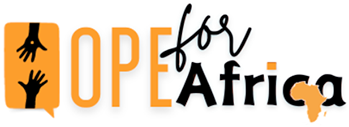Debt and How to Manage it
Debt can be a useful financial tool when managed properly, but it can also become a burden if left unchecked.
Many people struggle with debt due to poor financial decisions, unexpected expenses, or a lack of financial literacy.
The good news is that with the right strategies, you can avoid unnecessary debt and effectively manage any existing debts.
This guide will cover:
- What debt is and how it works
- When debt becomes a real problem
- Biblical principles on debt and borrowing
- Responsible borrowing habits
- Strategies to avoid debt
- How to become debt-free
Let’s start with a clear understanding of what debt is.
What is debt?

Photo by Tima Miroshnichenko
Debt refers to money borrowed from a lender that must be repaid, usually with interest. People and organizations take on debt when they do not have enough funds to make a purchase or cover expenses upfront.
Common forms of debt include:
- Loans (personal, student, business, auto loans, mortgages)
- Credit card balances
- Payment plans and buy-now-pay-later programs
- Government or corporate bonds
Lenders charge interest as the cost of borrowing money, making it important to understand debt agreements and repayment terms before taking on any loan.
When debt becomes a real problem
While debt can be helpful for managing large expenses, it can quickly become a burden when:
- Monthly payments exceed income, leading to financial strain.
- High-interest debts accumulate, making it difficult to pay off balances.
- Debt limits financial freedom, preventing savings and investments.
- Borrowing becomes a habit for covering regular expenses.
Being mindful of how and when you take on debt can prevent financial stress and long-term challenges.
What the Bible teaches about debt and borrowing
The Bible offers wisdom on handling money, including debt management. Here are three key lessons:
1. Seek to live within your means. Avoid excessive debt when possible.
The Bible warns against incurring debt that leads to financial bondage. Unfortunate circumstances happen, but when we have a choice, we should be careful about arrangements that leave a big part of our financial future under the control of another.
“The rich rules over the poor, And the borrower is servant to the lender” (Proverbs 22:7, NKJV).
This reminds us that excessive debt can control our lives, limiting financial freedom and increasing stress.
2. Pay back what you owe.
It is important to honor financial commitments and pay our debts responsibly:
“Owe no one anything except to love one another, for he who loves another has fulfilled the law” (Romans 13:8, NKJV).
Failing to repay debts can damage relationships, reputations, and financial stability. Proper budgeting and good communication can help navigate the repayment process.
3. Be wise with borrowing.
God encourages financial wisdom, ensuring that any borrowing is done with responsibility and careful planning:
“The plans of the diligent lead surely to plenty, But those of everyone who is hasty, surely to poverty” (Proverbs 21:5, NKJV).
Being intentional with financial decisions helps avoid unnecessary debt and financial stress. Hasty or impulse decisions are often the ones that can get us in trouble.
Principles for responsible borrowing

Photo by African Creator
While avoiding debt is ideal, some financial situations may require borrowing. When borrowing, follow these principles:
- Only borrow when necessary. Avoid taking on debt for luxury or non-essential expenses.
- Understand loan terms. Read the fine print to ensure you know the interest rates, repayment period, and penalties.
- Have a repayment plan. Before borrowing, create a plan for how you will pay off the debt.
- Avoid high-Interest debt. Credit cards and payday loans often have high interest rates that can lead to long-term financial issues.
- Live within your means. If you cannot afford something without debt, reconsider the purchase. See what other options you might have.
Strategies to avoid debt
The best way to stay financially free is to develop habits that prevent unnecessary borrowing. Here are some strategies to keep your finances on track:
1. Create and stick to a budget
A budget helps track income and expenses, ensuring that you live within your means. Follow the 50/30/20 rule:
- 50% for essential expenses (rent, food, bills)
- 30% for discretionary spending (entertainment, dining out)
- 20% for savings and debt repayment
2. Build an emergency fund
Unexpected expenses, such as medical emergencies or car repairs, can lead to debt if there are no savings. Aim to save at least 3-6 months’ worth of expenses in an emergency fund.
3. Avoid impulse spending
Buying unnecessary items can lead to financial stress. Before making purchases, ask yourself:
- Do I really need this?
- Can I afford this without borrowing?
- Is this a priority right now?
4. Save for major expenses
Instead of relying on credit cards or loans, plan ahead for big purchases by setting aside money over time.
5. Be cautious with credit cards
Credit cards can be useful but can also lead to significant debt if we end up using them too often or relying on them. Best practices include:
- Paying off the full balance each month to avoid interest charges.
- Using credit cards for emergencies only.
- Keeping track of spending to prevent overspending.
How to become debt-free

Photo by REAFON GATES
If you are currently in debt, take steps to regain financial control and achieve debt freedom.
1. List all your debts
Write down all outstanding debts, including balances, interest rates, and minimum payments. This helps you understand the full picture and create a repayment strategy.
2. Prioritize high-interest debts
Use one of these three popular repayment methods:
- Debt snowball method: Pay off the smallest debts first for quick wins, then move to larger debts.
- Debt avalanche method: Focus on paying off high-interest debts first to save money on interest over time.
- Debt stacking: If you have multiple debt accounts, such as credit cards, personal loans, car payments, etc., choose one debt source to pay off first, such as the one you can pay off the fastest. Temporarily pay only the minimum payments on other debts each month while directing more money toward the debt you selected to pay off first. When that debt is paid off, use what you were paying toward that debt each month and add it toward the debt you want to pay off next. Continue this process until all the debts are paid off.
3. Make more than minimum payments
Paying only the minimum keeps you in debt longer. Contribute extra payments whenever possible to reduce the debt faster so the interest is applied to a lower amount each month.
4. Cut unnecessary expenses
Find areas in your budget where you can reduce spending and allocate more funds to debt repayment.
5. Increase your income
Look for ways to boost earnings, such as freelance work, selling unused items, or starting a side business, and use the extra income to pay off debt faster.
Final thoughts
Debt can be a helpful financial tool when managed wisely, but it can easily become overwhelming if not properly controlled.
By practicing financial discipline, making informed borrowing decisions, and following strategies for debt avoidance and repayment, you can work toward financial freedom.
If you are struggling with debt, take action today. Develop a plan, seek guidance if needed, and stay committed to making wise financial choices.
Your financial future is in your hands—start now and build a debt-free life!

